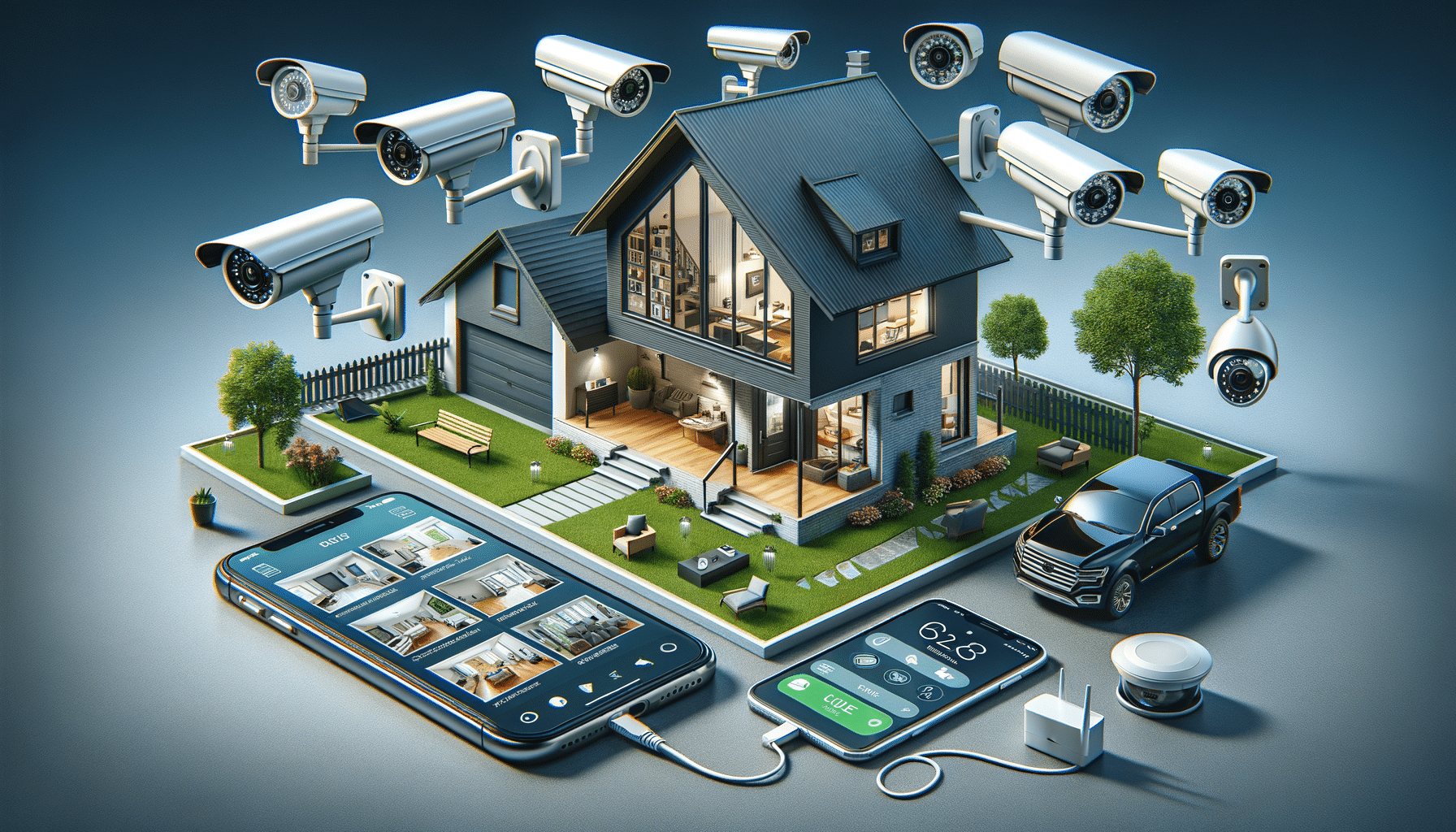
Home Security Cameras in the U.S.: How They Work and How to View Them Remotely
Understanding Home Security Cameras
Home security cameras have become an integral part of modern security systems, offering peace of mind and a sense of control over one’s property. These devices come in various forms, including wired, wireless, indoor, and outdoor models, each serving different purposes based on the homeowner’s needs.
At their core, security cameras are designed to capture video footage of specific areas, providing real-time monitoring and recording capabilities. Many modern cameras come equipped with advanced features such as motion detection, night vision, and two-way audio, enhancing their utility and effectiveness.
One of the key benefits of home security cameras is their deterrent effect. The presence of visible cameras can discourage potential intruders, reducing the risk of break-ins and vandalism. Additionally, recorded footage can serve as valuable evidence in case of an incident, aiding law enforcement in identifying and apprehending suspects.
When selecting a security camera, it’s essential to consider factors such as resolution, field of view, connectivity options, and compatibility with smart home systems. These elements can significantly impact the camera’s performance and suitability for specific environments.
How to View a Security Camera From Anywhere
One of the most appealing features of modern security cameras is the ability to view live footage remotely. This capability allows homeowners to monitor their property from anywhere in the world, provided they have an internet connection.
To access a security camera remotely, users typically need to install a dedicated app on their smartphone or tablet. These apps provide an interface for controlling the camera, viewing live feeds, and accessing recorded footage. Many apps also offer customizable alerts, notifying users of motion detection or other events.
For remote viewing to work effectively, the security camera must be connected to a stable internet connection. This connection allows the camera to transmit data to the cloud, where it can be accessed by authorized users. It’s crucial to ensure that the camera’s firmware is up to date and that the network is secure to prevent unauthorized access.
In addition to mobile apps, some security cameras offer web-based platforms for remote viewing. These platforms can be accessed through a web browser, providing flexibility for users who prefer not to rely on mobile devices.
Key Considerations Before Installing a Security Camera at Home
Before installing a security camera, homeowners should carefully evaluate their specific needs and circumstances. This evaluation will help determine the most appropriate type of camera and installation strategy.
One of the primary considerations is the intended location of the camera. Indoor cameras are typically smaller and less weather-resistant than outdoor models, which are designed to withstand environmental elements. It’s also important to consider the field of view and ensure that the camera is positioned to cover critical areas without obstructions.
Privacy is another crucial factor. Homeowners should be mindful of local regulations regarding surveillance and ensure that cameras do not infringe on the privacy of neighbors or passersby. Additionally, it’s essential to inform family members and visitors about the presence of cameras to maintain transparency.
Technical considerations, such as power supply and connectivity, should not be overlooked. Wired cameras may require professional installation due to the need for electrical connections, while wireless models offer more flexibility in placement but rely on battery power or frequent recharging.
Finally, integrating security cameras with existing smart home systems can enhance their functionality. Many cameras are compatible with voice assistants and smart hubs, allowing for seamless control and automation.
Benefits of Remote Monitoring
Remote monitoring of security cameras offers numerous benefits, making it an attractive feature for homeowners seeking enhanced security and convenience. One of the primary advantages is the ability to keep an eye on one’s property at all times, regardless of location.
This capability is particularly valuable for frequent travelers or individuals with multiple properties. Remote monitoring allows them to check in on their homes, ensuring that everything is in order and receiving alerts if any unusual activity is detected.
The flexibility of remote access also extends to emergency situations. In the event of a break-in or other incident, homeowners can quickly assess the situation and take appropriate action, such as contacting law enforcement or alerting neighbors.
Moreover, remote monitoring can contribute to energy savings and environmental sustainability. By integrating security cameras with smart home systems, users can automate lighting and temperature controls based on activity detected by the cameras, reducing energy consumption when rooms are unoccupied.
Enhancing Security with Advanced Features
Today’s security cameras are equipped with advanced features that enhance their effectiveness and provide additional layers of security. These features include motion detection, night vision, and two-way audio, among others.
Motion detection is a critical component of modern security cameras, allowing them to identify and record activity within their field of view. This feature can be customized to trigger alerts, ensuring that homeowners are notified of potential intrusions in real time.
Night vision capabilities enable cameras to capture clear footage in low-light conditions, extending their usefulness around the clock. Infrared LEDs or advanced low-light sensors are commonly used to achieve this functionality.
Two-way audio adds an interactive element to security cameras, allowing homeowners to communicate with visitors or potential intruders. This feature can be particularly useful for confirming the identity of delivery personnel or deterring unwanted guests.
By leveraging these advanced features, homeowners can create a comprehensive security strategy that addresses their unique needs and provides peace of mind.
